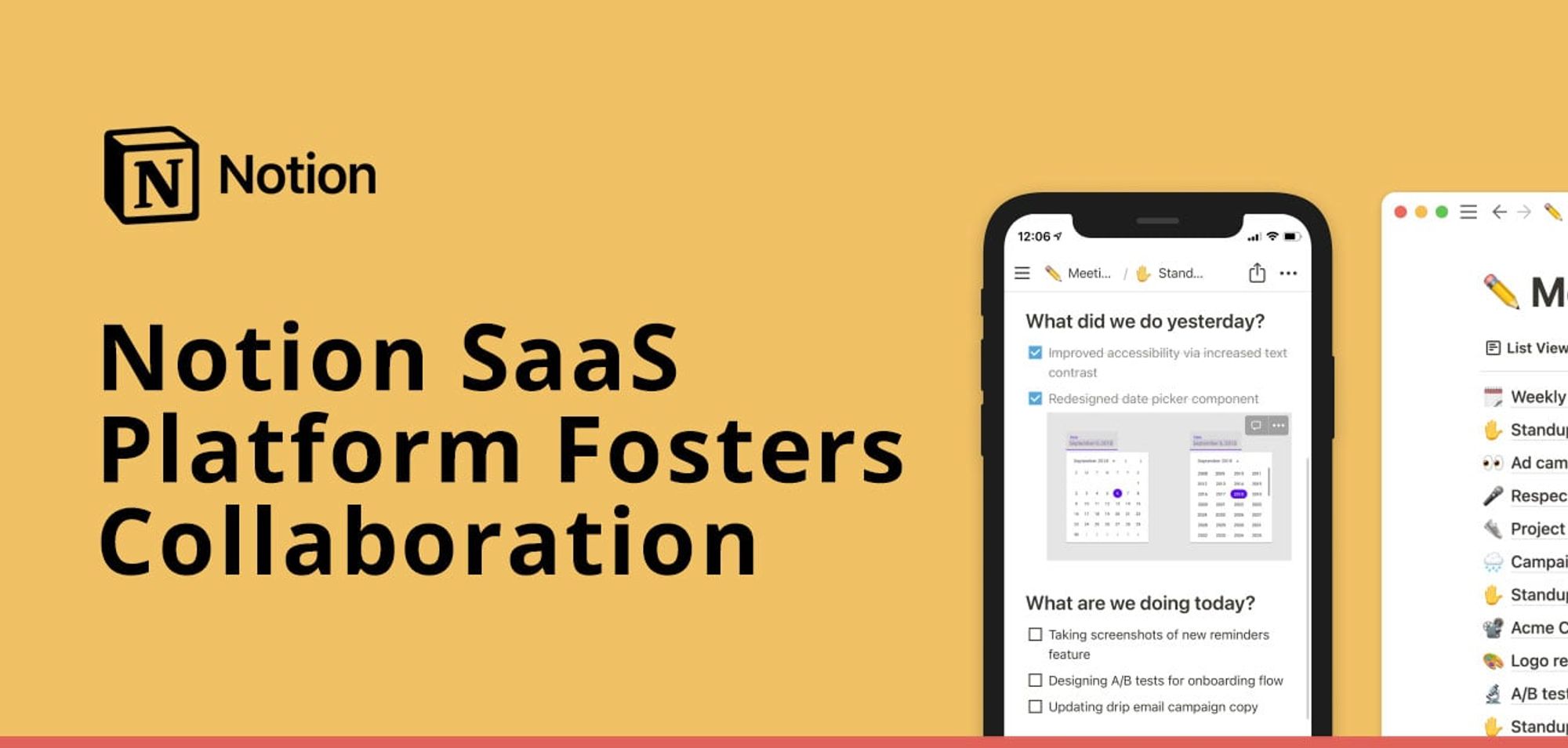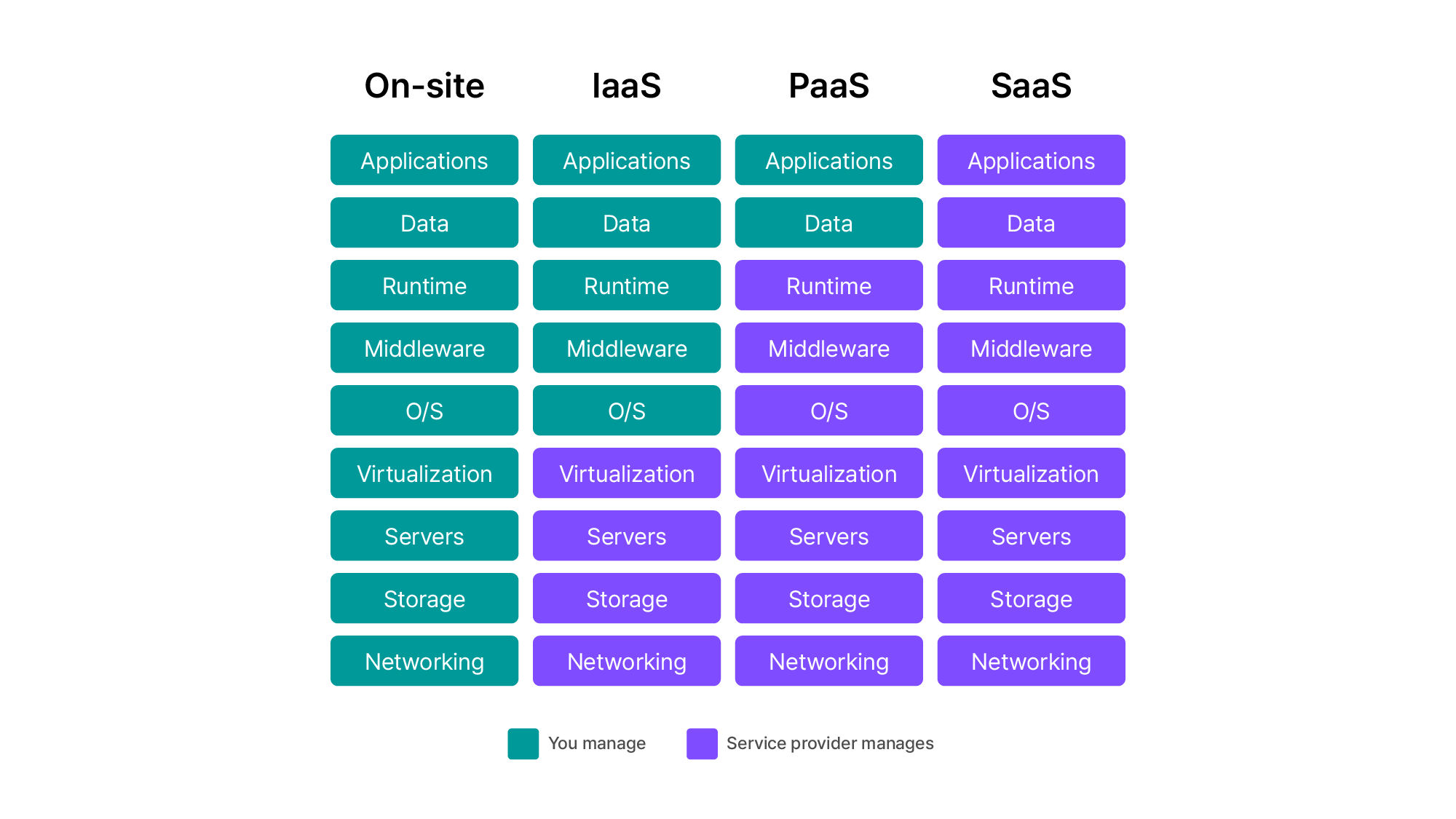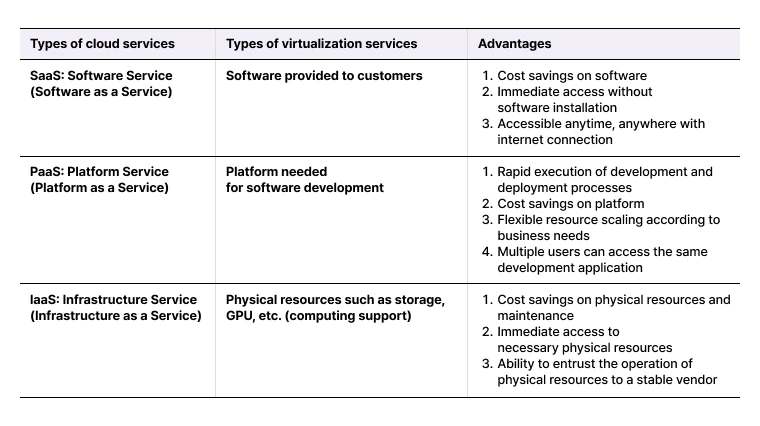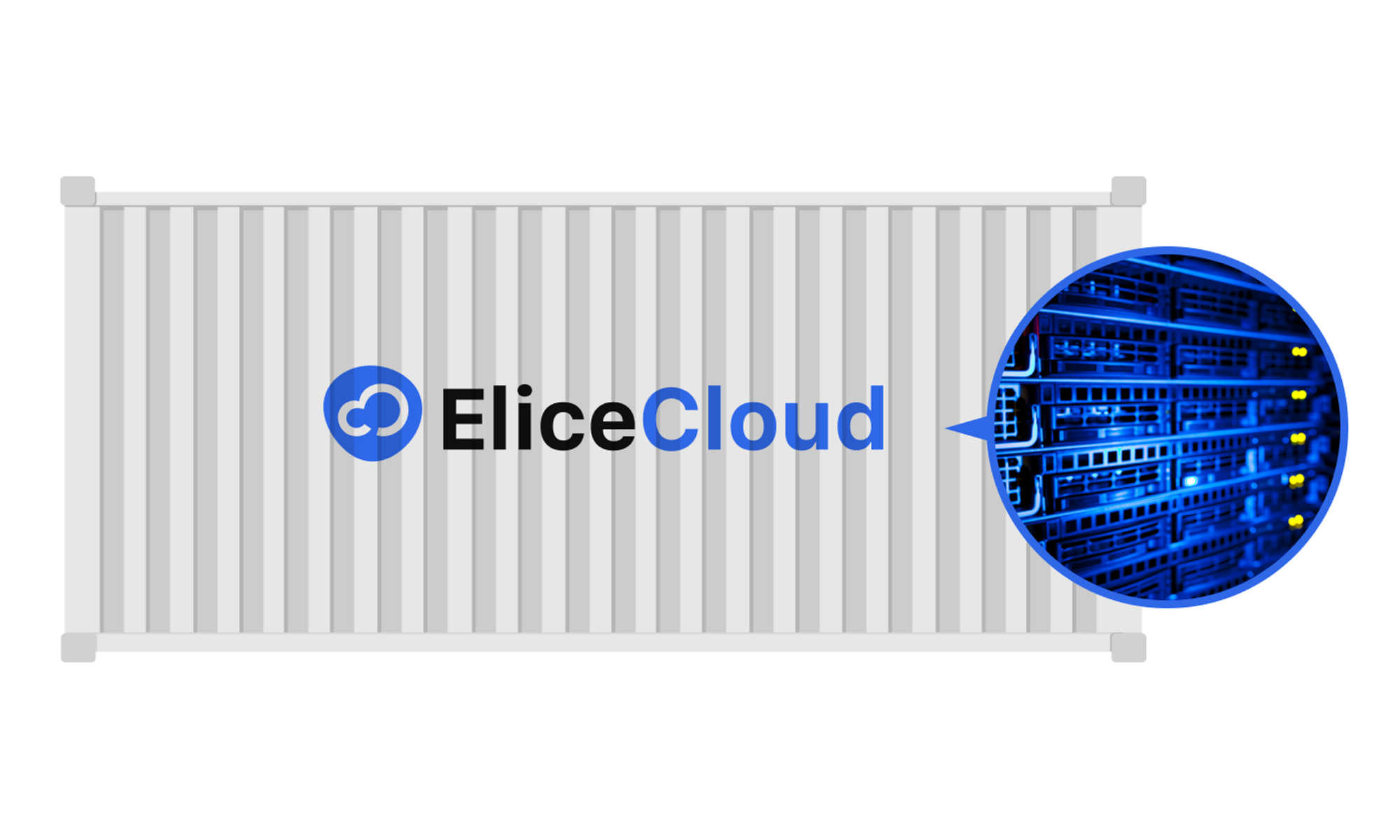Comparing Cloud Services - The Differences Between SaaS, PaaS, and IaaS
Elice
8/25/2025
There are three types of cloud services: SaaS, PaaS, IaaS. What these three types of services have in common is that they are based on “cloud computing.” They provide services that can be accessed with just an Internet connection by building infrastructure on third-party servers. On the other hand, these three services are also different in their unique characteristics. Companies can choose the most suitable cloud service among SaaS, PaaS, and IaaS based on their business strategy to promote efficient corporate operations. In this content, we will explore the characteristics of SaaS, PaaS, and IaaS, and how each form of service is used. If you are interested in SaaS, PaaS, and IaaS cloud services, we hope you pay close attention.
Development Glossary for Non-Developers - Watch Now
Comparing the features of cloud services
Software as a Service (SaaS)

The first cloud service we’ll look at is software as a service (SaaS). SaaS is a cloud-based software application delivery model. In the case of SaaS, since the software is hosted on third-party servers, users can access it over the internet without the need to install the software on their own servers. SaaS is the most commonly used cloud service among general users due to its user-friendly nature. Examples of SaaS include Notion, Figma, MS Office, and more.
A typical SaaS that is often utilized by businesses is a customer relationship management (CRM) service. CRMs are designed to help businesses manage their interactions with customers, from lead generation to customer service. It is an affordable and scalable solution that businesses of all sizes can adopt for customer management.
SaaS advantages
The best feature of SaaS is that it offers the benefit of on-demand simplicity: the service itself is very straightforward, time-saving, and consistent.
SaaS, like other cloud services, has the advantage of being easy to use, inexpensive, and accessible. Because the service provider handles maintenance and schedule updates, you won’t have to install or manage anything yourself. You can access the latest version anytime and anywhere via a web browser or mobile app, as long as you have an internet connection. You also save money on purchasing, maintaining, and repairing software and hardware. Because you can choose a subscription plan based on your needs, you will only be paying for what you use, free of any upfront costs.
Platform as a Service (PaaS)
PaaS is a cloud that provides a platform for developing, testing, and deploying applications. PaaS allows developers to focus on developing applications without worrying about infrastructure and other backend services, from development tools to runtime environments. PaaS is ideal for businesses that need a standardized development platform and want to reduce man-hours from development.
A prime example of a PaaS is Heroku. Heroku reduces costs by providing a platform for developing and deploying applications. It supports a variety of programming languages, such as Ruby, Node.js, Python, Java, and more. Therefore, Heroku allows developers to focus solely on the development aspect of applications. Apart from Heroku, there are various other PaaS services such as Microsoft Azure, Google App Engine, and AWS Elastic Beanstalk, which also support multiple programming languages and provide an environment for developing, deploying, and managing programs.
PaaS advantages
Unlike other services, PaaS provides an application development platform. As we’ve seen, utilizing PaaS can greatly enhance the efficiency and reliability of the development process. This is because it gives you access to a wide range of development tools, allowing for greater scalability and eliminating the need to build your own development environment. It also allows you to test the latest technologies without taking on too much risk. PaaS platforms provide access to the latest resources, which means customers can test new operating systems, tools, and languages before making a serious investment in the necessary infrastructure.
Like SaaS, PaaS doesn’t require users to purchase physical hardware. You are given the flexibility to add or remove resources freely, and by its nature, updates will be done by your service provider.
Infrastructure as a Service (IaaS)

Infrastructure as a service (IaaS) is a cloud that provides virtualized computing infrastructure, including servers, storage, and networking. The service allows businesses to upgrade or downgrade their infrastructure as needed without having to purchase their own hardware. IaaS allows flexible management of computing resources as needed. It scales computing resources up or down in response to changes in traffic, increasing or decreasing as necessary. Users have complete control over the infrastructure, including the operating system, applications, and data, as needed, through IaaS. Therefore, proper utilization of it requires expertise in cloud infrastructure and technology.
Because IaaS is less accessible to the average person, we will illustrate its uses through examples: If you’re a business managing data, you can leverage IaaS to rent storage and computing resources from a cloud provider. After borrowing the infrastructure, you can access it through a web-based portal or API. You upload your data to the virtual storage and utilize the compute resources to manage it. Later, you can add or remove infrastructure resources as needed.
One such popular provider is Microsoft Azure. MS Azure offers a wide range of services and tools for building and deploying applications and services through Microsoft-managed data centers. Azure is a versatile solution that offers all three SaaS, PaaS, IaaS options as well as the aforementioned services. MS Azure offers a variety of VM options, including Windows and Linux-based VMs, allowing you to develop and deploy applications on different operating systems. It also offers a variety of storage options, including blob, file, and disk storage, allowing you to store and manage all sorts of data. It also provides virtual networking capabilities, load balancing capabilities, backup and recovery solutions, and more, all infrastructure that allows for more flexible development.
IaaS Advantages
SaaS, PaaS, IaaS all have the same advantages of cost savings and scalability, but IaaS in particular has greater scalability and autonomy. Among these, IaaS, in particular, offers broader scalability and autonomy. Since you have full control over the underlying infrastructure, it requires a higher level of expertise compared to other services. Additionally, leveraging encryption and the advanced security and protection features of IaaS providers ensures a high level of security for your data center.
SaaS PaaS IaaS Differences


In conclusion, SaaS, PaaS, IaaS are cloud-based services that offer different levels of infrastructure and services. A simple overview of cloud services tells us that SaaS is a software-based service, PaaS is a platform-based service, and IaaS is an infrastructure-based service. Let’s summarize the differences between SaaS, PaaS, and IaaS from a user’s perspective.
- SaaS provides access to easy-to-use software and applications It is a hands-off option as your service provider will manage everything, including applications, data, middleware, runtime, operating systems, servers, storage, visualization, and networking.
- PaaS provides an environment (platform) for application development. The service provider takes care of everything needed for development: operating system, runtime, middleware, servers, virtualization, storage, networking, etc. while you can tend to applications and data.
- From the user’s standpoint, IaaS is the most flexible service, offering infrastructure for networking, computing, and storage. Consequently, users can obtain an environment where they have full control over the infrastructure.

In this module, I have summarized the features and differences of the cloud services SaaS PaaS IaaS. I hope it was beneficial for those curious about cloud services. Did you know that Elice also provides cloud services? Elice’s GPU cloud service can be considered an IaaS cloud service. In addition to this, Elice also provides a DX education platform in the form of PaaS. If you are curious about Elice’s cloud services, we recommend that you check out the links below for more information.
IaaS, Elice GPU Cloud Business for AI Advancement - Watch Now
Explore Elice LXP, The One-Stop Platform for All Things Digital Education - Watch Now
*This content is a copyrighted work protected by copyright law and is copyrighted by Elice.
*The content is prohibited from secondary processing and commercial use without prior consent.
- #DX
- #Cloud

